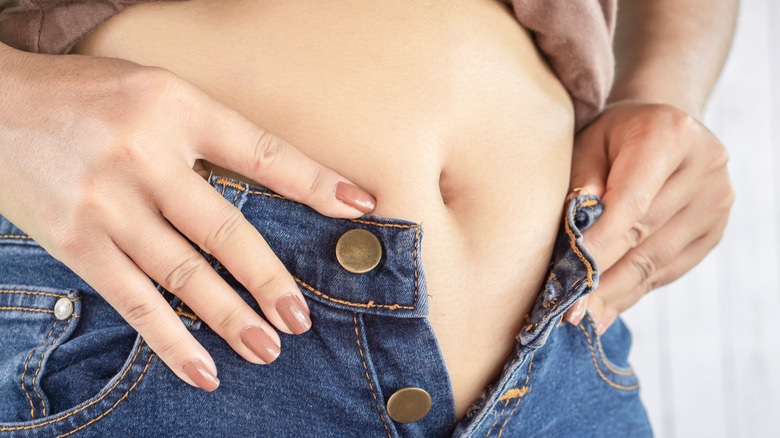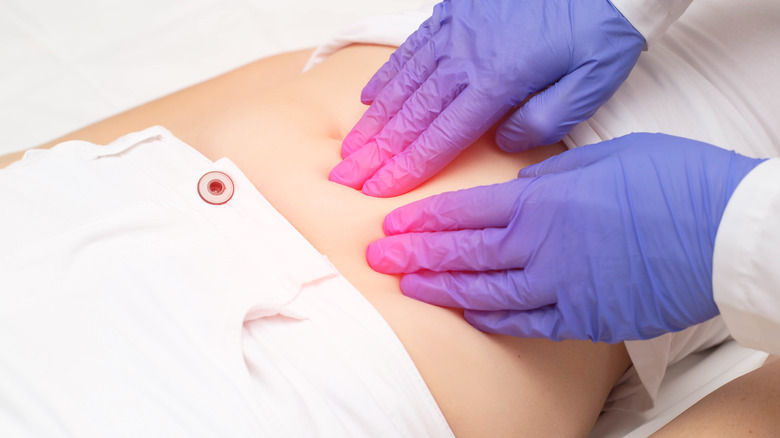What It Really Means When Your Belly Button Hurts
Just like all parts of our bodies, belly buttons come in all shapes and sizes. They're so unassuming we can forget that they're there — so what does it mean when they hurt?
Navels (no, not like the oranges) are actually scars left behind from the umbilical cord removed when humans exit the womb (via ZME Science). The umbilical cord attaches the fetus to the placenta, where we get all our nutrients, receive oxygen, and remove waste from the blood. After birth, the placenta is disconnected by cutting the umbilical cord, leaving behind a hollow or raised area commonly known as the belly button. The size and shape of a navel aren't determined by how or where the cord is cut, but rather by how the scar tissue develops. Whether you have an "innie" or an "outie" is thought to be a random occurrence, though the majority of humans have innies, according to ZME Science.
According to National Geographic, the bacteria found inside our belly buttons is similar to that of a rainforest — a study from the Belly Button Biodiversity Project showed that 2,368 different species of bacteria were discovered in 66 collective belly buttons or samples.
Should belly buttons hurt?
Typically, belly buttons are painless remnants of our past. But occasionally we can experience sharp or dull pain in or near our navels. So what does it mean?
Belly button pain can be attributed to a number of causes, according to Healthline. A hernia can cause sharp pain near the belly button, especially when stretching or coughing. Hernias are due to pressure that causes the intestine or tissues to bulge out and need to be treated surgically. Crohn's disease can also cause belly button pain, as the small intestine becomes inflamed and causes sensitivity. If you experience bloating, along with navel pain, indigestion could be the culprit. If you experience belly button pain while pregnant, you might feel sharp pain near the navel in your second trimester. This is caused by the round ligament stretching to support the uterus in its connection to the groin.
Be sure to clean your belly button each time you bathe to prevent infections (via MedicineNet). Your navel may leak a discharge or be crusty after washing it, in which case, you may need an antibacterial ointment or even doctor-prescribed medication to combat the infection.


